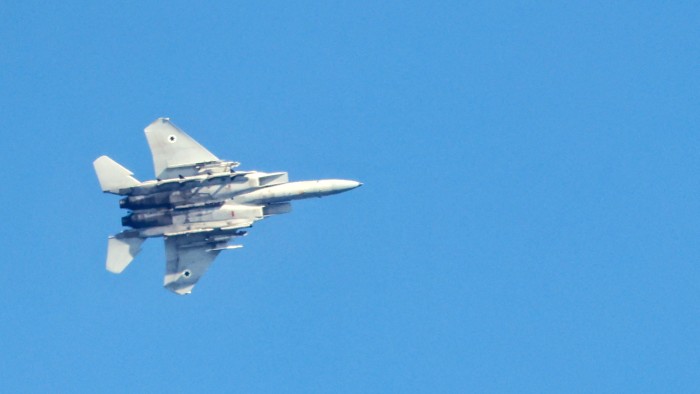Unlock the Editor’s Digest for free
Roula Khalaf, Editor of the FT, selects her favourite stories in this weekly newsletter.
Israel’s defence minister has instructed the military to maintain “aerial superiority” over Iran to enforce a US-brokered ceasefire.
“The Israel Defense Forces’ mission now is to prepare a ‘blue and white’ enforcement plan to ensure Iran will not be able to threaten Israel again,” defence minister Israel Katz told the military on Thursday night, in an apparent reference to the colours of the Israeli flag.
His office did not share further details, but the outline echoed how Israel has interpreted a ceasefire with Hizbollah in Lebanon, where the air force has carried out near-daily air strikes even after the formal cessation of hostilities in November 2024.
US President Donald Trump announced a June 24 ceasefire between Iran and Israel after a 12-day war in which the Israeli air force quickly took control of the Iranian skies after destroying Iran’s limited aerial defences.
That enabled Israeli warplanes to strike across Iran at will, and cleared the way for a US assault on fortified underground nuclear facilities.
Katz instructed the military to ensure that Israel’s air force, the most technically advanced in the region, maintains that “air superiority and the ability to enforce the restrictions on Iran”.
“The state of Israel is determined to lead an active defence policy against Iran,” he said.
When Iran’s Supreme National Security Council accepted the ceasefire it said it had “its finger on the trigger” against any further Israeli assaults, while senior military figures have also pledged to respond to any Israeli aggression.
Even before Israel’s surprise assault in June, Iran had fired missiles at Israel on two previous occasions in retaliation for Israeli assassinations in Tehran and of Iranian military staff in a diplomatic compound in Syria.
Few expect the ceasefire between the two regional rivals to bring a complete end to hostilities.
Iran’s parliament this week passed a law that suspended co-operation with the UN’s atomic watchdog, the International Atomic Energy Agency, which could prevent its inspectors from immediately accessing the damaged nuclear sites.
But foreign minister Abbas Araghchi said the Islamic republic remained committed to its obligations under the Non-Proliferation Treaty, and Steve Witkoff, US special envoy to the Middle East, may meet Iranian officials in Europe next week, according to a report by Axios.
Read the full article here




